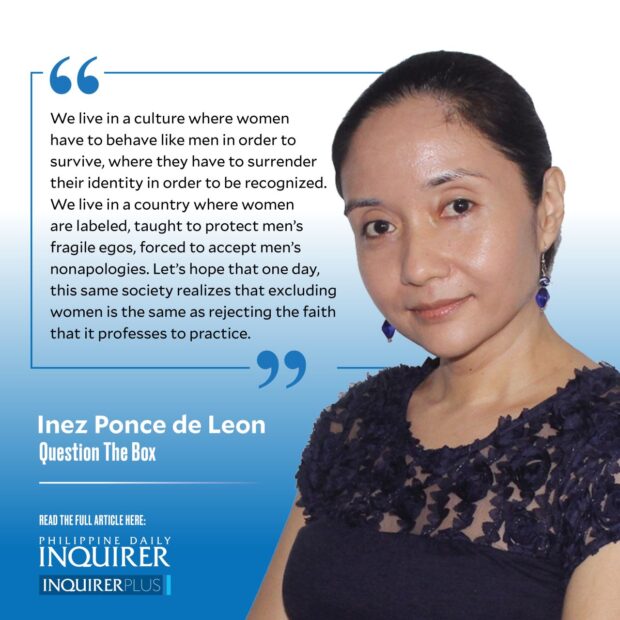Gender lenses and scrutinizing power

In particular, she referenced local governments that stamp a loose “gender” label on their programs simply to access their gender and development (GAD) fund. The GAD is part of a budget policy that requires government offices to set aside at least 5 percent of their annual budget for gender-related programs. These programs should, ideally, promote gender empowerment.
Robredo has long spoken about how uplifting women is consequential to national development. In a 2017 speech in South Africa sponsored by the Friedrich Naumann Foundation for Freedom, she encouraged local leaders to critically examine organizational structures that prevent women from advancing in society.
Article continues after this advertisementWhat does it mean to use a gender lens? To say that it focuses only on women would be shortsighted. Using a gender lens means inspecting existing policies to see how they might unduly favor one gender while excluding others, and then making changes based on these exclusions.
In research, using the gender lens means critically examining different spaces in terms of the power structures they perpetuate.
This year, my thesis advisee group of Aiden Bravo, Aiza Delgado, and Phyllis Ong used a gender lens to study the standpoints of college-age women who use the Light Rail Transit (LRT) system. Women’s safety, when viewed as an isolated issue, is addressed using mere dissemination of warning messages.
Article continues after this advertisementWhen my students examined the story of women’s safety against a backdrop of culture, power, and upbringing, however, they found misogyny so internalized, women could not even speak of harassment as a problem.
They had been taught to control other people’s emotions, actions, and desires by silencing their own identities. Their harassment was, therefore, their fault, because they chose to ride the LRT. Any discomfort was of their own making, an invention of their minds, a punishment for daring to feel offended.
From this, my students created a campaign that they will soon share with the LRT Authority. Their work, the group hopes, can help society articulate harassment as a real problem, and not some imagined ill that can be addressed by a token poster or voice-over announcement.
Perhaps a gender lens would be apt, too, to deepen the Easter narrative.
Women were not considered citizens in the Holy Land of biblical times: They were defined only by the presence of their husbands, had no voice in society, were plunged into poverty when they became widows. Because they had no power, they had no interest in maintaining the oppressive status quo of their times.
As the marginalized group, they would also have had the greatest insight into reality. They were not the Pharisees who would preach the good news in the guise of flowery semantics. They were not the ruling classes who could exploit an event to sustain their princely glory. They were not nobles greedy for more power and prestige.
Women, therefore, were the first to receive the message of the Resurrection. It was not because they were the lucky ones who passed by the empty tomb first. It was because they were the only ones who could truly spread the good news without attaching their own interpretations, without enforcing their own meanings. They saw truth, unvarnished; they beheld emptiness both awe-inspiring and Presence Everlasting.
The gender lens is not nonsense, as Robredo’s detractors like to call it. It means asking difficult questions about the structures that surround us: How have women been oppressed by government policies? How have they become second-class citizens because of media? How has education reinforced harmful gender norms? How has the economy pushed men to the forefront so that women cannot participate, or are stigmatized when they do?
We live in a culture where women have to behave like men in order to survive, where they have to surrender their identity in order to be recognized. We live in a country where women are labeled, taught to protect men’s fragile egos, forced to accept men’s nonapologies.
Let’s hope that one day, this same society realizes that excluding women is the same as rejecting the faith that it professes to practice.
iponcedeleon@ateneo.edu
















